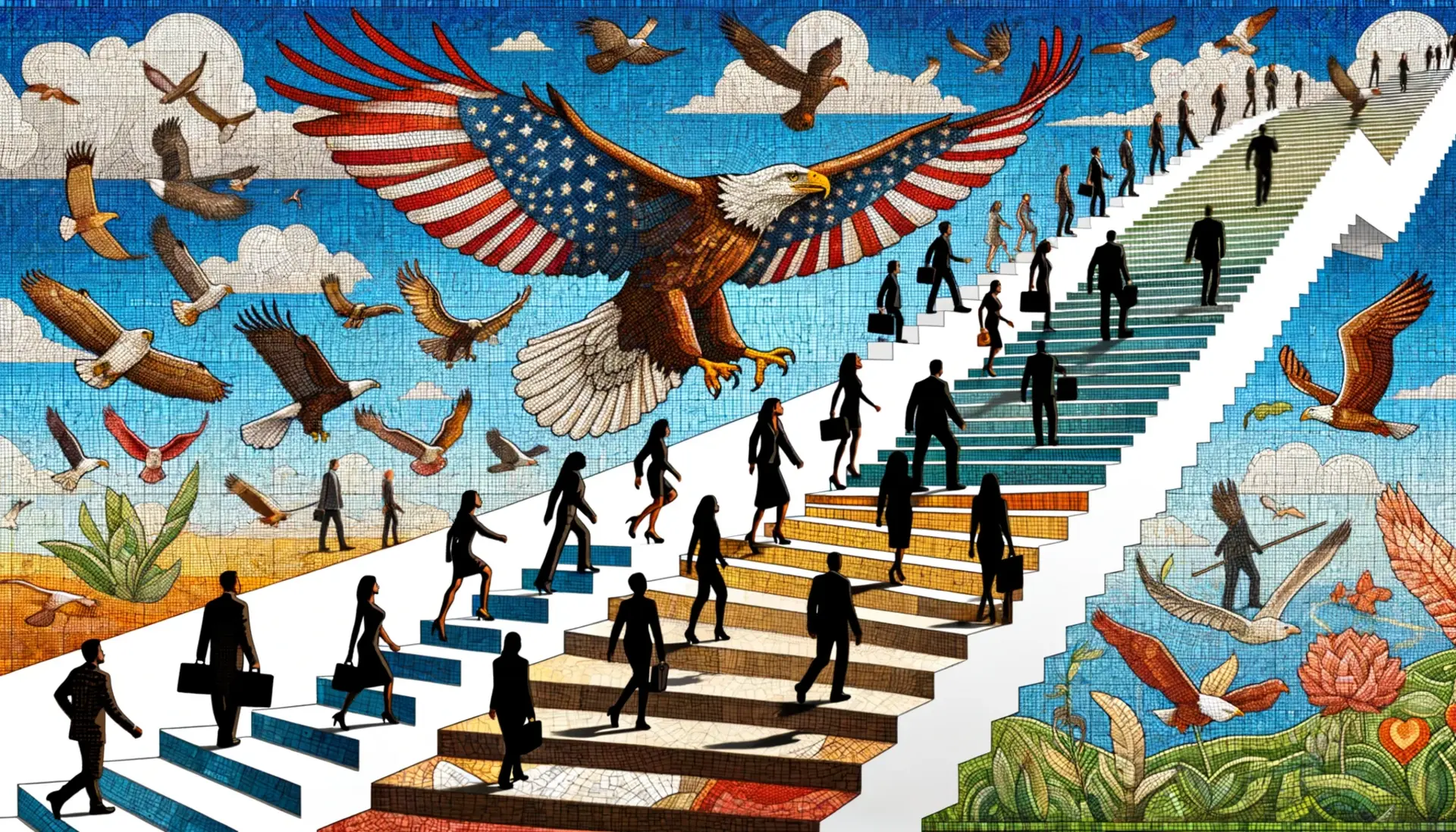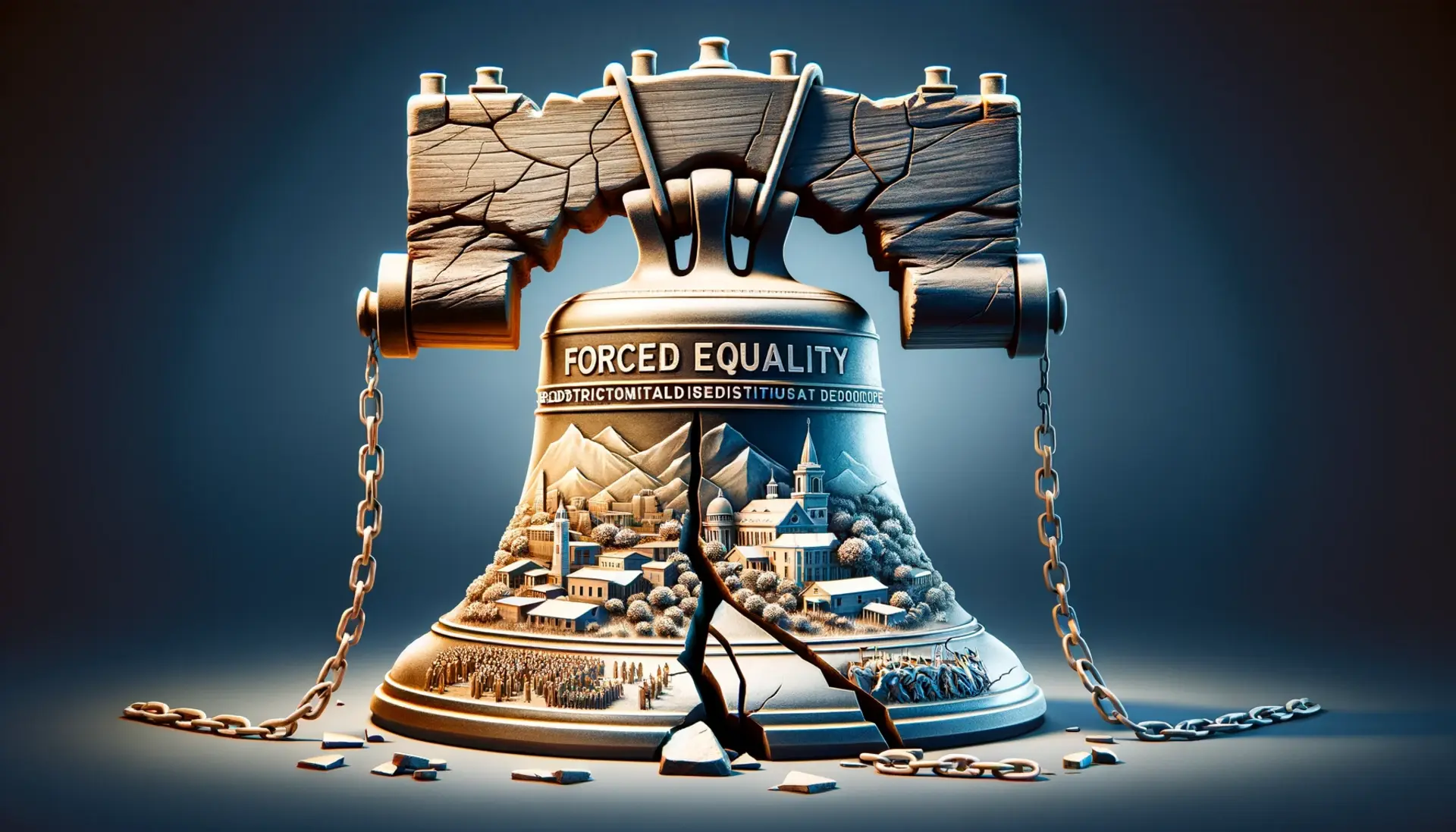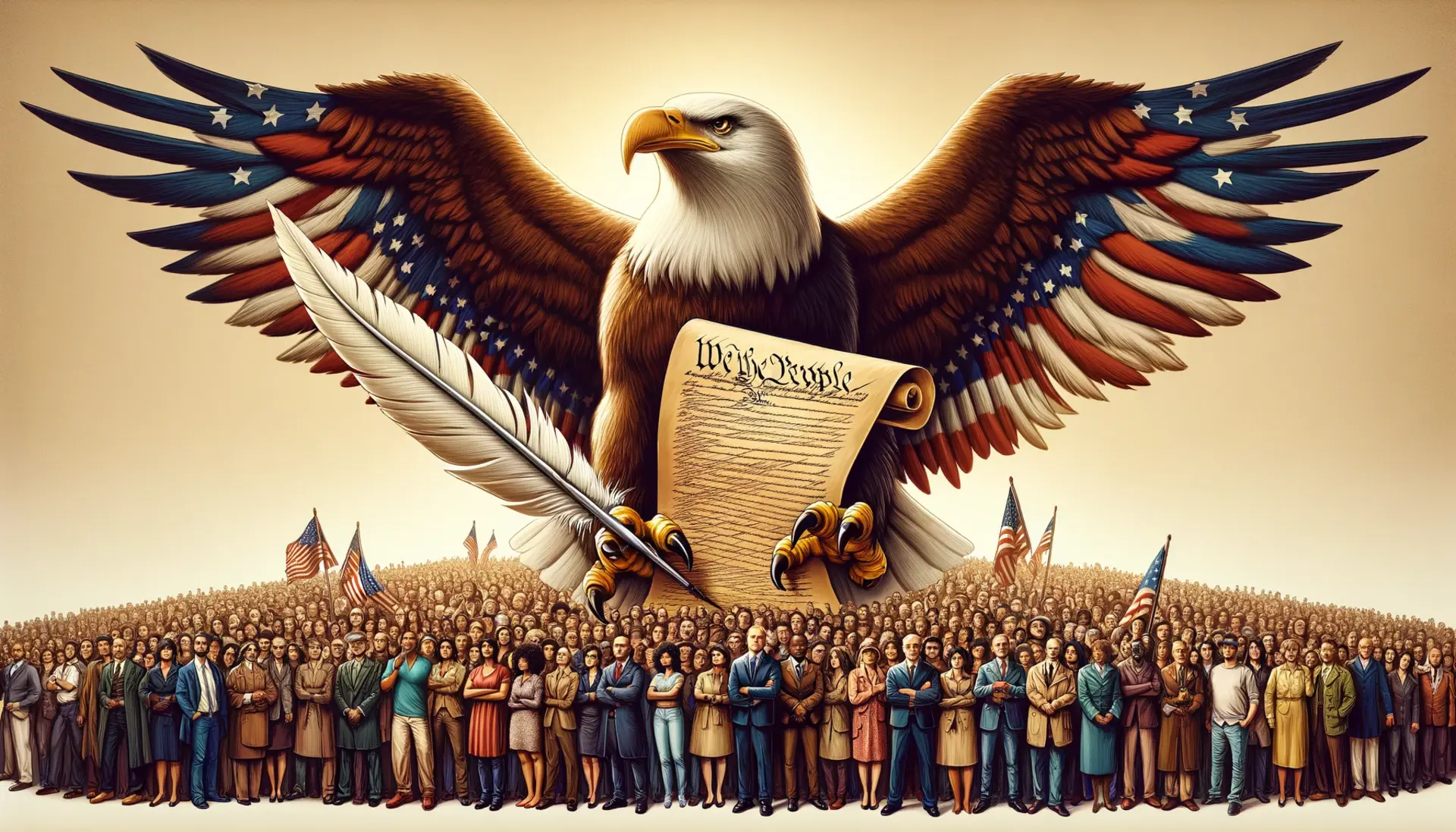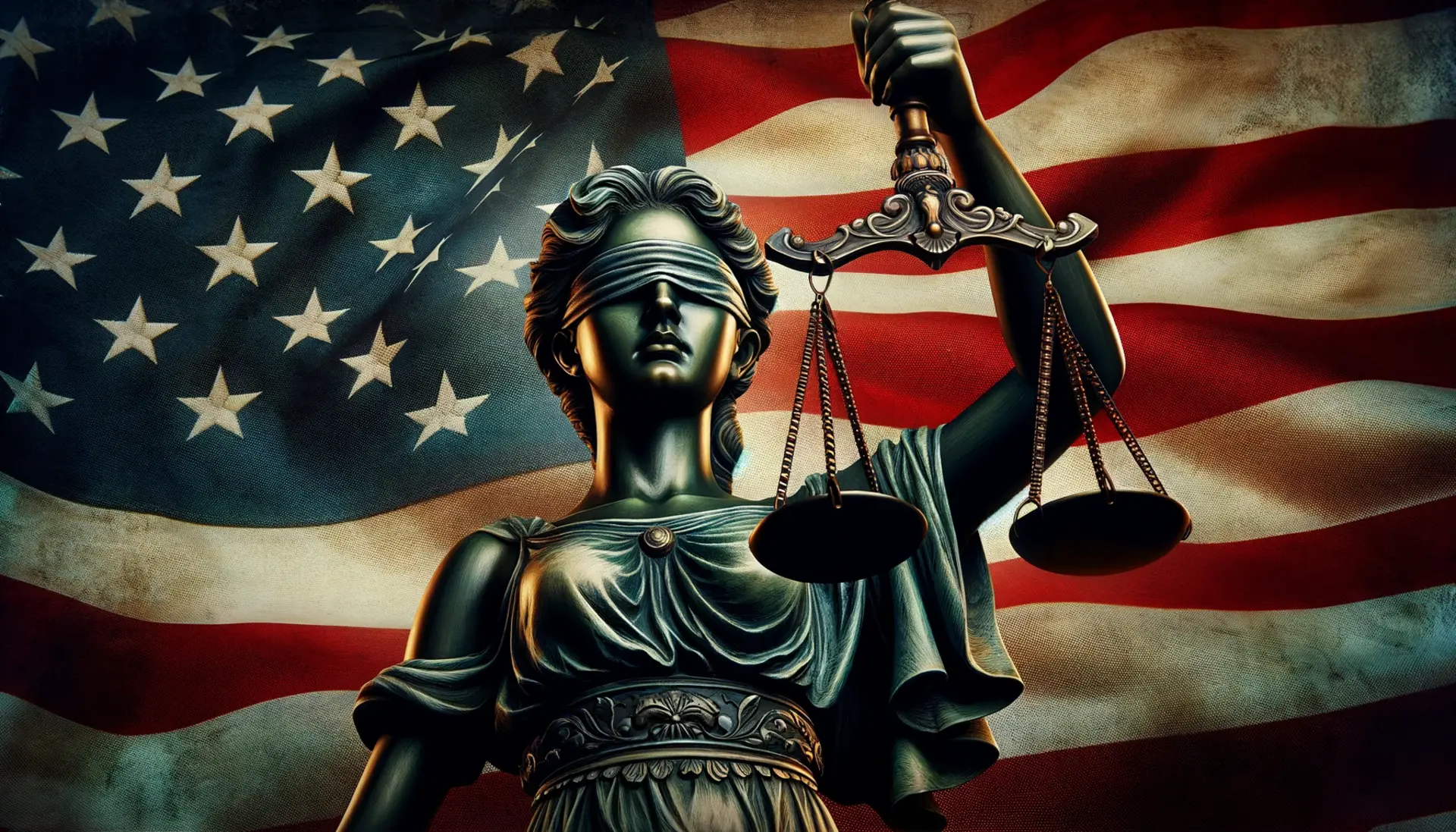America was conceived in liberty, with the promise of "Equality of Opportunity" being a cornerstone of its greatness. Our Founding Fathers espoused the belief that each individual should possess the same chance to pursue their ambitions without undue hindrances, reliance on birthright, or predetermined station in life.
TL;DR Summary
This article underscores the pivotal choice between "Equality of Opportunity vs. Equality of Outcome," asserting that the former upholds the freedoms foundational to American society, while the latter erodes liberty and engenders governmental overreach. Through historical insights and examination of current policies, it concludes that a steadfast commitment to opportunity, individual merit, and limited government is essential for national prosperity and the preservation of the American Dream. This concise overview invites discussion and action to defend the principles that ensure America's continued success.
The narrative seems to be shifting towards the misleading allure of "Equality of Outcome," an ideology that threatens the fabric of the nation that cherishes freedom and liberty. By focusing on redistributing wealth and outcomes, we run the risk of undermining the principles of hard work and meritocracy that drive innovation and prosperity. As Americans, we must reaffirm our commitment to the original vision of opportunity, ensuring the American Dream remains achievable for all who are willing to strive for it.
The Fallacy of Enforced Equality
The push for "Equality of Outcome" is seductive — it paints a utopian vision where everyone ends up at the same finish line regardless of where they started or how they ran the race. But beneath its veneer of fairness lies a coercive engine that throttles personal freedom and ingenuity. The very notion undermines individual rights, as it inevitably leads the government to pry into the lives of its citizens, dictating how wealth should be created and distributed.

History provides numerous cautionary tales of societies that pursued equality of outcome, only to spiral into tyranny and collapse. When governments seize private property rights and silence free speech to combat perceived inequalities, they create a society of entitlement culture instead of one that rewards work ethic. In these societies, the welfare state becomes bloated, sapping the vitality of both the economy and the people.
In stark contrast, "Equality of Opportunity" ushers in a world where each man and woman can rise in accordance with their aspirations and efforts. It is a fundamental American principle that reflects our conviction in self-made achievement and the rule of law. This is the ideal that fuels a competitive, yet fair, market system, encouraging individuals to innovate and excel, knowing that the fruits of their labor will not be unjustly appropriated.
Under equality of opportunity, the role of government is to ensure fair competition and prevent abuses, but not to guarantee outcomes or success. Economic fairness is not about making everyone equal, but about ensuring that the rules of the game are just, allowing for social mobility based on merit rather than handouts. It is through this lens of democratic principles that a society can achieve a balance between individual ambition and the common good.
Equality of Opportunity: The Bedrock of Freedom
Indeed, it's the principle of "Equality of Opportunity" that stands as the bedrock of freedom in American society. It reflects a profound belief in the potential for every individual to contribute meaningfully to our collective prosperity. By providing a ladder of opportunity for all, we uphold the vision of the Founding Fathers and foster an environment where the only limits to one's achievements are those of their own making.

It is this commitment to opportunity that has made America a beacon to the world, a place where personal initiative and hard work can transform the most modest beginnings into remarkable success stories. It is not by accident that the United States has been home to countless innovators and entrepreneurs who turned their visions into realities, inspiring generations and propelling the nation forward.
Yet today, there are currents in our political and social discourse that seek to erode this commitment, favoring a misguided notion of "Equality of Outcome." They promote policies not on the individual's ability or effort but by a misplaced sense of fairness that attempts to equalize condition. They forget that true equity is about removing barriers, not about handicapping the race so everyone finishes together.
Policies pushing for enforced equality of outcome often disregard the importance of individual merit and the intrinsic value of personal responsibility. A system wherein the fruits of one's labor are redistributed reduces the incentive to strive for excellence. It creates a discomforting paradox where success is penalized and mediocrity subsidized.
This is not the American way. The spirit of American individualism calls for self-reliance and civic engagement, not reliance on social welfare programs that stifle growth and innovation. Upholding equality of opportunity does not mean ignoring those in need but rather empowering them to overcome challenges and succeed based on their merits. It is a timeless call that continues to resonate—a call to action for a society of builders, dreamers, and doers.
The Threat of Social Justice Rhetoric
In recent years, the rhetoric around "social justice" has heightened, often misconstrued to mean the leveling of societal distinctions through economic and social engineering. While the aim of supporting disadvantaged communities is noble, it is the means by which it's executed that often becomes dubious. The misunderstanding comes at a cost—substituting opportunity with an overemphasis on redistribution becomes a pathway to dependency and governmental control.

"Social Justice" is frequently presented as a moral imperative, obliging the state to distribute resources to achieve uniform outcomes. This clamor for equality of outcome under the guise of virtue presents a deceitful narrative that goes against the grain of American exceptionalism. It pits citizens against each other in class warfare, eroding the sense of community and shared destiny.
Policies emanating from social justice claims frequently deter individual initiative, positioning government as the arbiter of resources and opportunities. This breeds a victim mentality instead of promoting the universal rights that have allowed a diverse population to uniformly strive for betterment. It positions the state as the provider rather than the protector, shifting the balance from public service to public authority.
The consequences of such social justice policies are not insignificant; they often exacerbate the very issues they seek to remedy. Income disparity becomes more glaring when interventionist policies disrupt the natural economic mechanisms that favor innovation and wealth creation. By undermining the foundational principles of property rights and fair competition, such policies hinder true progress and stoke further discontent.
Preserving Freedom Through Limited Government
It is well understood that our Constitutional framework was designed to ensure a limited government, one that serves to protect the rights and freedoms of its citizens without becoming a burdensome leviathan. The erosion of this principle through the expansion of governmental powers stands contrary to the very notion of American freedom. It is within the bounds of minimal government interference that individual liberties thrive and society prospers.

The benefits of limited government are manifold; it encourages a free market economy where individuals can engage in wealth creation through innovation and entrepreneurship. When individuals and businesses operate with certainty that their private property rights are secure and that their success won't be arbitrarily removed through excessive taxation, they are motivated to take risks and invest in their futures.
Moreover, the importance of constitutional protections cannot be overstated. These protections are not mere historical relics, but the essential safeguards of individual rights. When government expands beyond these confines, it often does so at the expense of personal liberties. The pervasive threat of authoritarianism looms whenever we allow the balance of power to tip too far in favor of state control. Vigilance is required to ensure that policies do not encroach upon the liberties that the Constitution enshrines and the American Dream embodies.
Conclusion: A Call to Action
In summary, "Equality of Opportunity vs. Equality of Outcome" is not merely an ideological debate, but a fundamental distinction that maps the trajectory of our nation. One path leads towards self-reliance, personal growth, and national prosperity, while the other directs us down the road to dependency, stagnation, and dissolution of the values that allowed for the phenomenal ascent of the United States on the world stage.

Thus, it is incumbent upon us, as custodians of these values, to heed the call to action. We must engage in civic discourse, remain vigilant in our defense of individual liberties, and resist the allure of policies that promise equal outcomes at the expense of the freedoms we hold dear. We are a nation of diverse paths and potentials, and together, by upholding the principles that sparked our revolutionary spirit, we can ensure that opportunity, rather than outcomes, defines our future.
